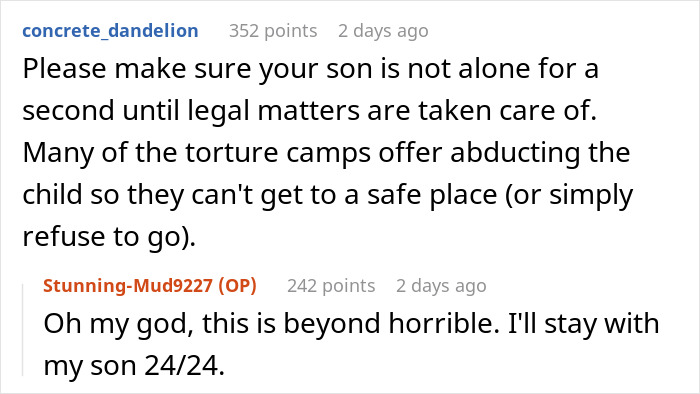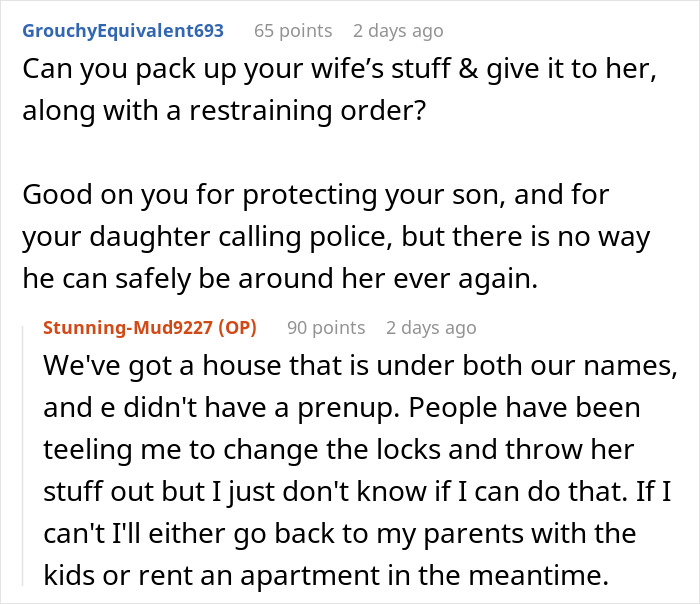Most parents love their children no matter what. Even though their kid might be different, they change their own way of seeing the world for them because they understand that their kid not “fitting in” isn’t something that can be changed. Ideally, that’s the way it should be—parents loving their child unconditionally and always being there to support them regardless of what life throws at them.
Unfortunately, this mom couldn’t accept the fact that her son wasn’t attracted to the opposite sex. She even suggested they send him to conversion camp, where they will “cure” and “fix” him. The husband couldn’t get on board nor believe what his wife was proposing and was ready to protect his kids at all costs, even if it meant leaving the mother of his children.
Unfortunately, not all parents love their children unconditionally

Image credits: gryffyn m / unsplash (not the actual photo)
This mom couldn’t live with the fact that her son wasn’t attracted to the opposite sex and even tried “fixing” him

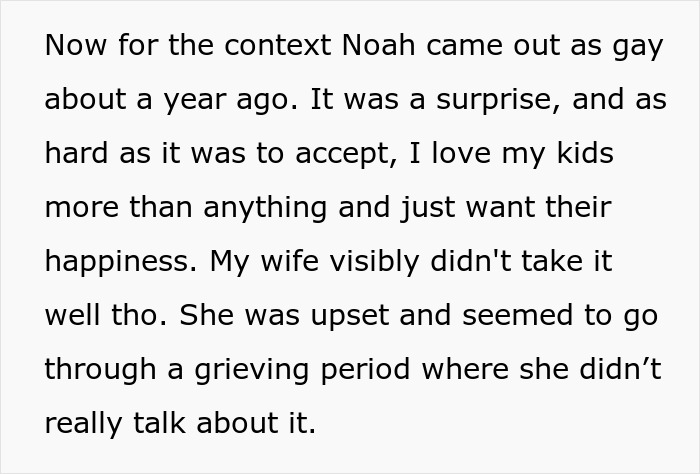


Image credits: cottonbro studio / pexels (not the actual photo)
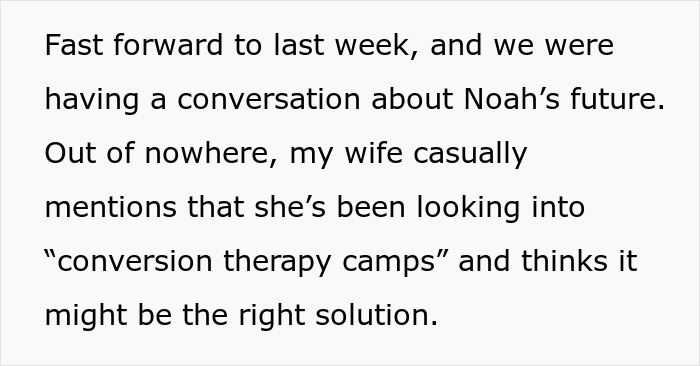
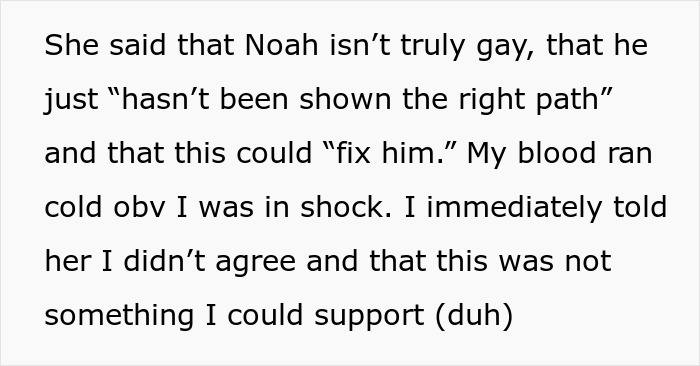

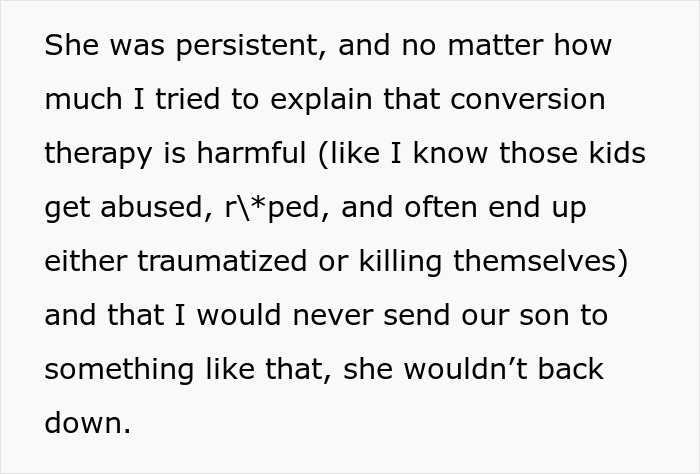

Image credits: Timur Weber / pexels (not the actual photo)

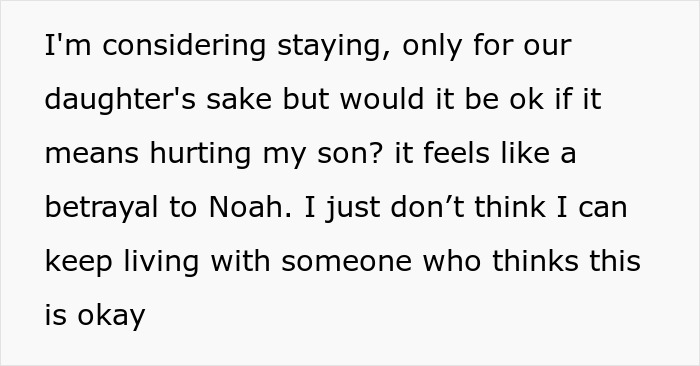
Image credits: Stunning-Mud9227
Coming out is a huge release of emotions like fear, hope, joy, and anger
Coming out is a very big moment. It’s a huge release of emotions like fear, hope, joy, and anger that have been bottling up in a person for however long they knew they’re a proud part of the LGBTQ community. There’s really no right or wrong timing or way to do it so it’s important that when a child comes to their parents, they appropriately react and offer their best support.
In the moment, experts recommend remaining as calm as possible. Coming out might not be as glamorous as some movies portray it to be. It might happen spontaneously during a heated argument or a fight so it’s important to stay zen. Parents should fully listen to what their child has to say and nod in confirmation that they are actively doing so.
The situation should be all about the offspring and how they feel. Therefore, guardians should refrain from imposing their own opinions or emotions. On top of that, it’s totally okay if the child isn’t ready to talk about everything yet, they will do so on their own time.
When they’ve shared what they wanted to, the parents can positively react by saying that they’re glad they told them and thanking them for trusting and being honest with them. They can also definitely offer a hug and affirm that they will always love them and support them no matter what. Ask them how they feel so they can process what has happened.
“The most important thing you can do is to tell your child how much you love them”

Image credits: Curated Lifestyle / unsplash (not the actual photo)
Now the first don’t (which excludes mom’s behavior from the story) is saying, “I already knew!” Some may feel comforted that their loved ones were already aware, but others may be terrified they didn’t keep their secret hidden enough. To stay on the safe side, it’s better to refrain from speaking out this phrase altogether. It’s also best to forget jokes and stereotypes and just listen with an open mind and show interest in learning and doing better.
Another don’t is saying, “It’s just a phase!” It’s very likely that they won’t “grow out” of homosexuality and downplaying isn’t going to make them feel better. By coming out, the child is simply informing the parents that it’s just who they are and that that heterosexuality isn’t their default setting. Denying it isn’t going to change the fact. Instead, the child’s feelings need to be acknowledged and taken seriously.
Parental support is crucial during such a period in an adolescent’s life. A study in child development by researchers at the University of Texas revealed that those who felt greater social support from their parents had fewer depressive symptoms than those who experienced psychological support from their parents.
Dr. Caitlin Ryan, clinical social worker and LGBTQ health and mental health researcher, suggests, “The most important thing you can do is to tell your child how much you love them. Your love reassures them that you are there for them and it creates space to talk honestly about each other’s feelings. This helps your family stay connected and grow together.”
The author provided more information in the comments
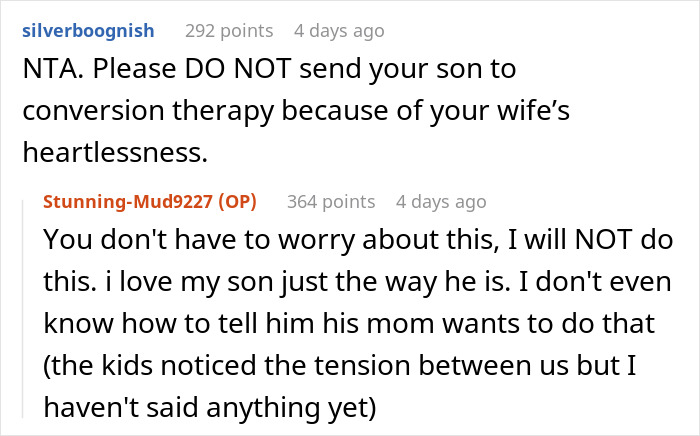


Readers supported the father and agreed that the son doesn’t need fixing
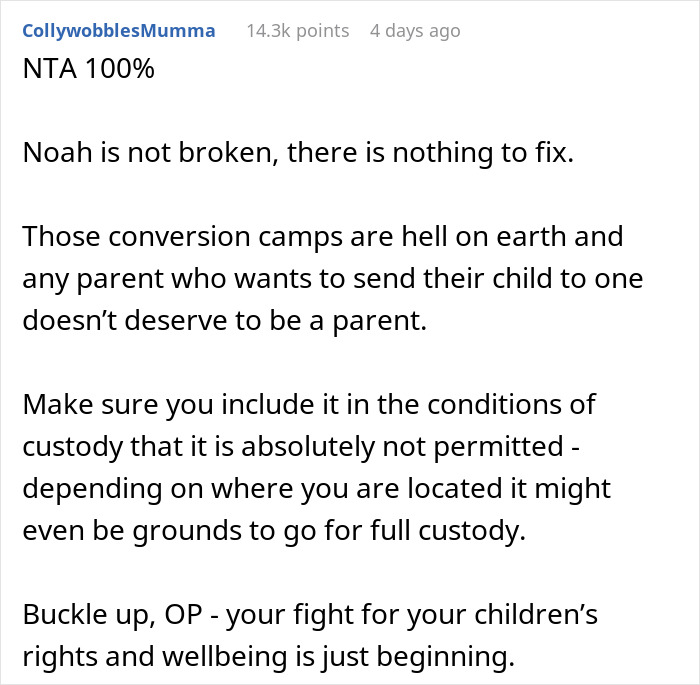
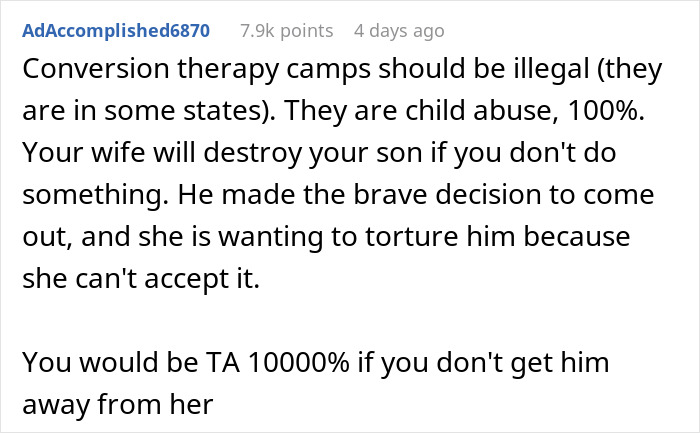

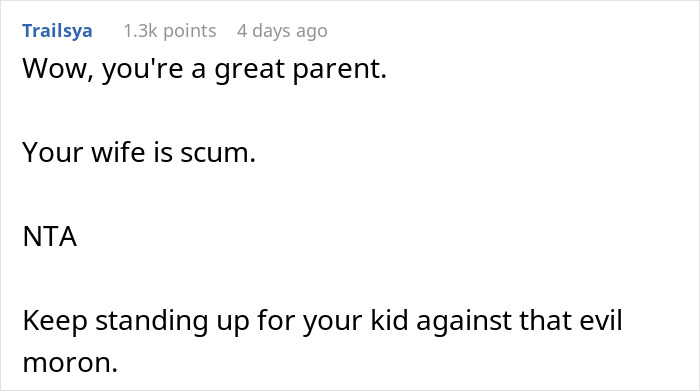
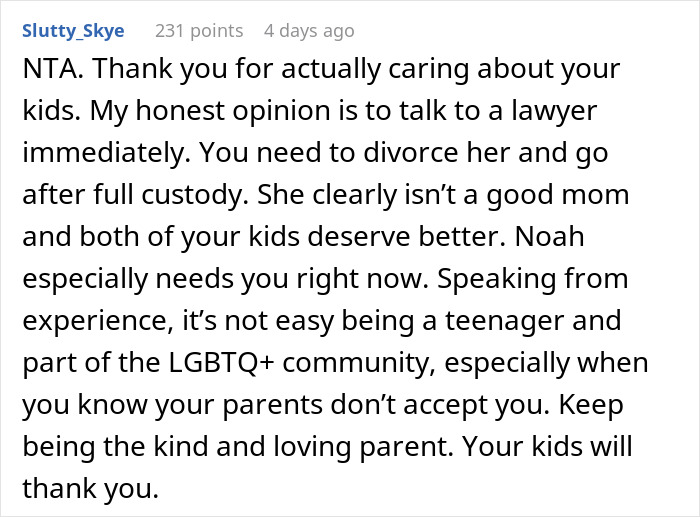





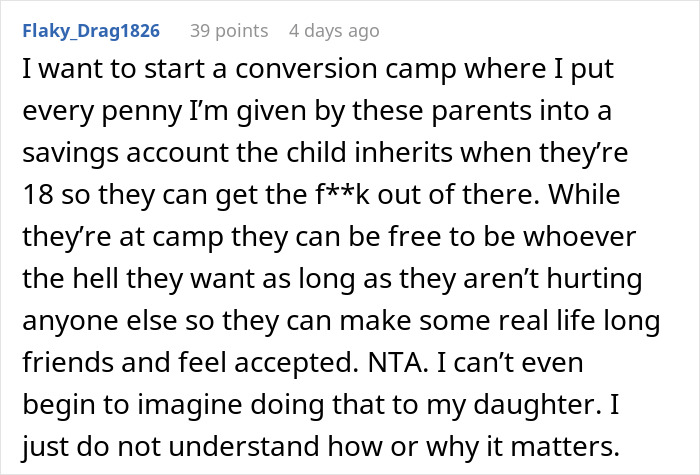

Later, the dad came back with an update


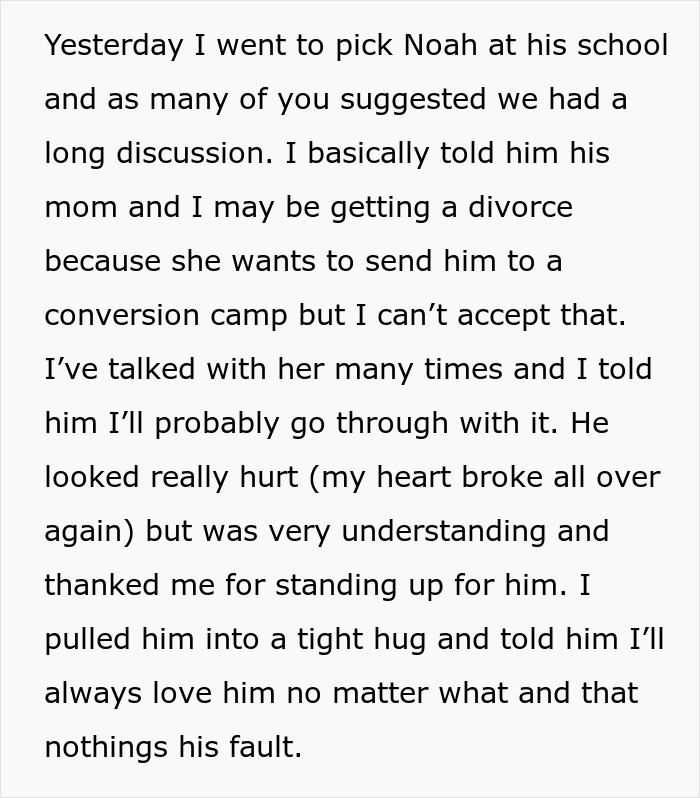
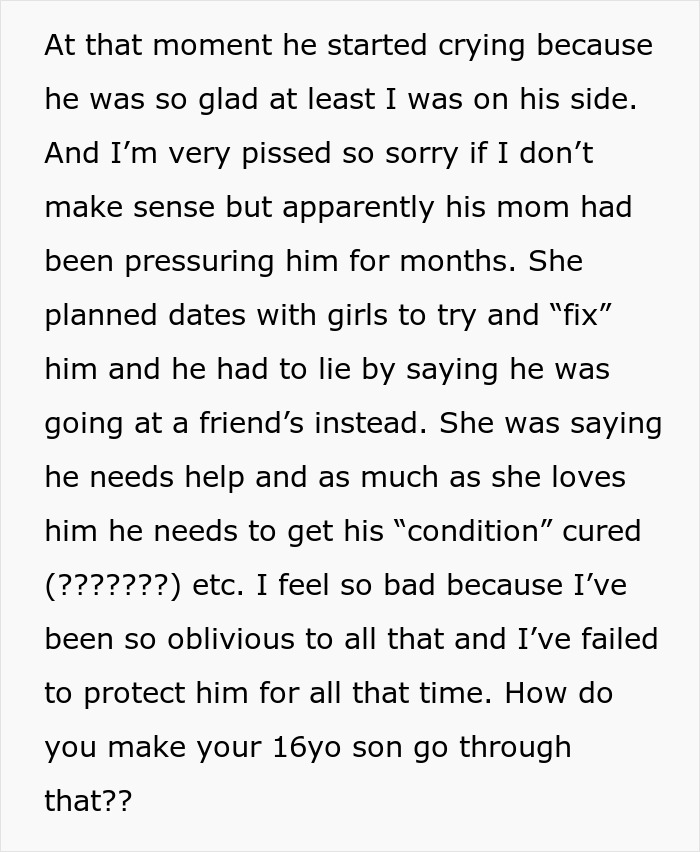


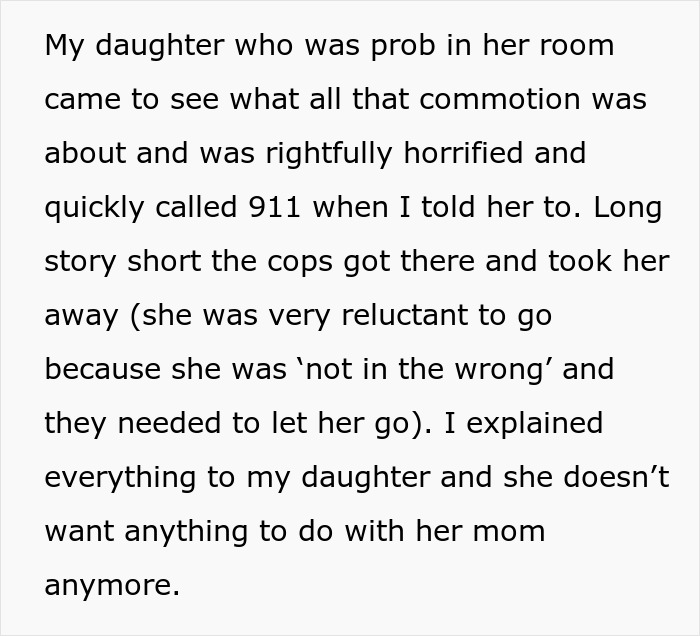
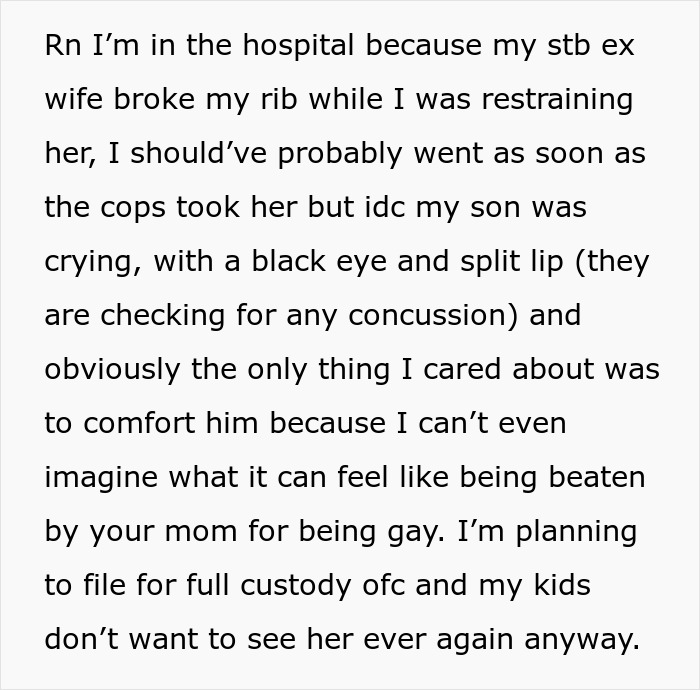

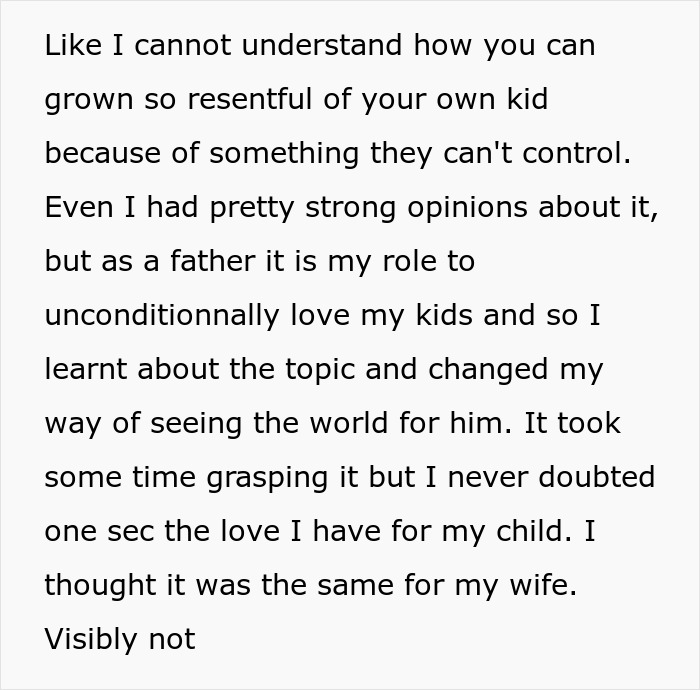
Readers were glad that the dad stood up for his kids



